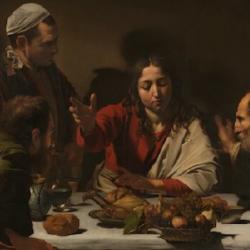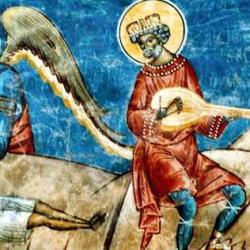As early as Xenophon, ingratitude has seen as a cause of sedition, and during the middle ages the social and political context of feudalism strengthened this link. Xenophon wrote, “And they [the Persians] bring one another to trial also charged with an offense for which people hate one another most but go to law least, namely, that of ingratitude; and if they know that any one is able to return a favour and fails to do so, they punish him also severely. For they think that the ungrateful are likely to be most negligent of their duty towards the gods, their parents, their country, and their friends; for it seems that shamelessness goes hand in hand with ingratitude; and it is that, we know, which leads the way to every moral wrong” (Xenophon, Cyropaedia, 1.2.7 [Loeb Classical Library; Walter Miller, trans.; Cambridge: Harvard University Press, 1914]).
Seneca agrees: “There always will be homicides, tyrants, thieves, adulterers, ravishers, sacrilegious, traitors: worse than all these is the ungrateful man, except we consider that all these crimes flow from ingratitude, without which hardly any great wickedness has ever grown to full stature” (De Beneficiis, 1.9).
For Elizabethans, it was a truism that the ungrateful citizen who refused to acknowledge the direct beneficence of his prince and or the various less tangible benefits that arise from stable political order would be a potential traitor. Shakespeare dramatized the ingratitude of treason in a number of plays.
The theme is established early in Julius Caesar, when the patrician Marullus chides the churning populace of
Ultimately, the plague that ingratitude unleashes on
See what a rent the envious Casca made:
Through this the well-beloved Brutus stabb’d;
And as he pluck’d his cursed steel away,
Mark how the blood of Caesar follow’d it,
As rushing out of doors, to be resolved
If Brutus so unkindly knock’d, or no;
For Brutus, as you know, was Caesar’s angel:
Judge, O you gods, how dearly Caesar loved him!
This was the most unkindest cut of all;
For when the noble Caesar saw him stab,
Ingratitude, more strong than traitors’ arms,
Quite vanquish’d him: then burst his mighty heart;
And, in his mantle muffling up his face,
Even at the base of Pompey’s statue,
Which all the while ran blood, great Caesar fell.
O, what a fall was there, my countrymen!
Then I, and you, and all of us fell down,
Whilst bloody treason flourish’d over us (3.2.172-189).
Ingratitude has similar effects in Titus Andonichus, where the theme again arises in the opening scene. Titus has rendered faithful service to
Ingratitude is prominent in another narrative thread as well. Tamora, the Gothic Queen now made Empress, is the first to speak of gratitude explicitly, as she seeks to convince her new husband to overlook Titus’ wrongs, for the moment:
Dissemble all your griefs and discontents:
You are but newly planted in your throne;
Lest, then, the people, and patricians too,
Upon a just survey, take Titus’ part,
And so supplant you for ingratitude,
Which
Yield at entreats; and then let me alone:
I’ll find a day to massacre them all
And raze their faction and their family,
The cruel father and his traitorous sons,
To whom I sued for my dear son’s life,
And make them know what ‘tis to let a queen
Kneel in the streets and beg for grace in vain (1.1.446-461).
If the emperor does not time his vengeance against Titus wisely, he could provoke the ingratitude of all
In Antony and Cleopatra, Enobarbus is the chief traitor, albeit a reluctant and suicidally penitent traitor. He is the Judas who leaves his master during his last supper and makes bargains with his master’s enemies. What is revealing here is that Enobarbus’s treachery is seen as treachery toward
Cantor (Shakespeare’s Rome, 43-45), writes “Because in the Empire a commander generally gets credit for his subordinates’ accomplishments, the advantage is with those already in power, and the temptation for a commander to rest on his laurels is much greater than it is in the Republic. At the same time, for men trying to make their fortunes in the world, the inducement to perform heroic and glorious deeds for
From the perspective of the Andronici, they are the ones defending
Ingratitude can thus issue in tyranny as well as in treason, and in this Shakespeare is reflecting Elizabethan common sense. Residually feudal in their political opinions, the Elizabethans believed that rulers and lords had obligations toward their vassals and subjects, such that subjects and administrators, and soldiers in particular, had a right to receive benefits from rulers, who depend on them for military success and orderly political life.















